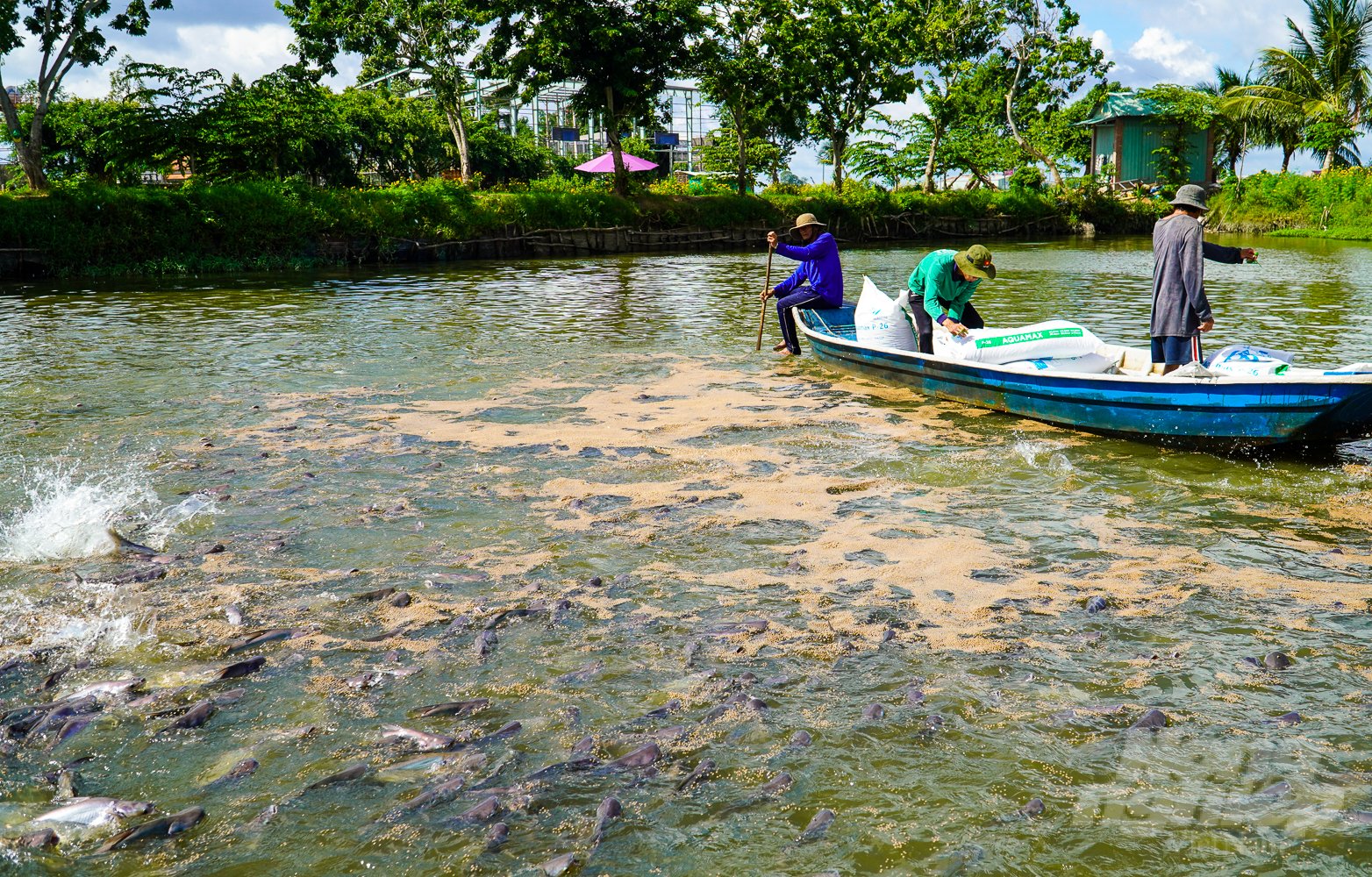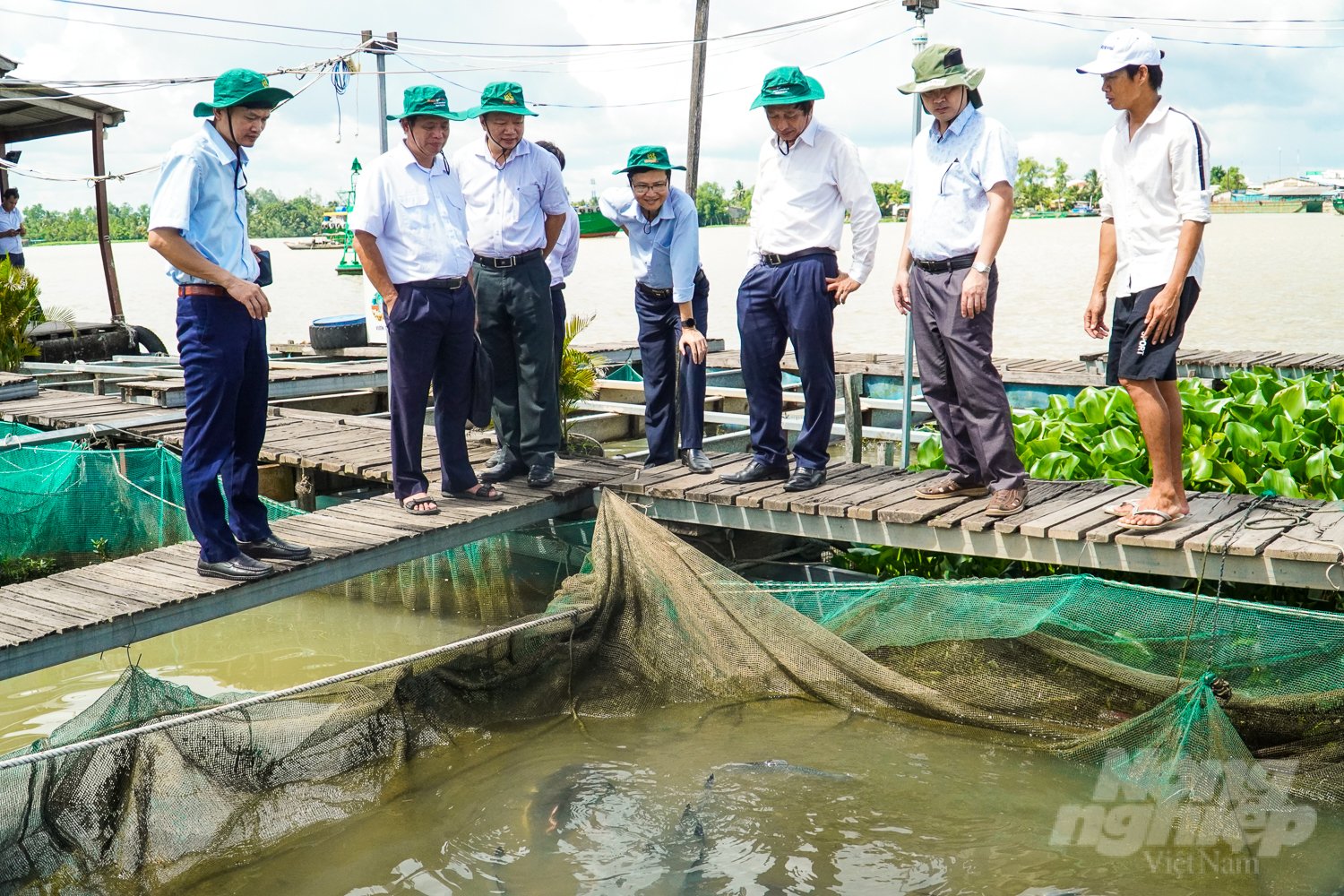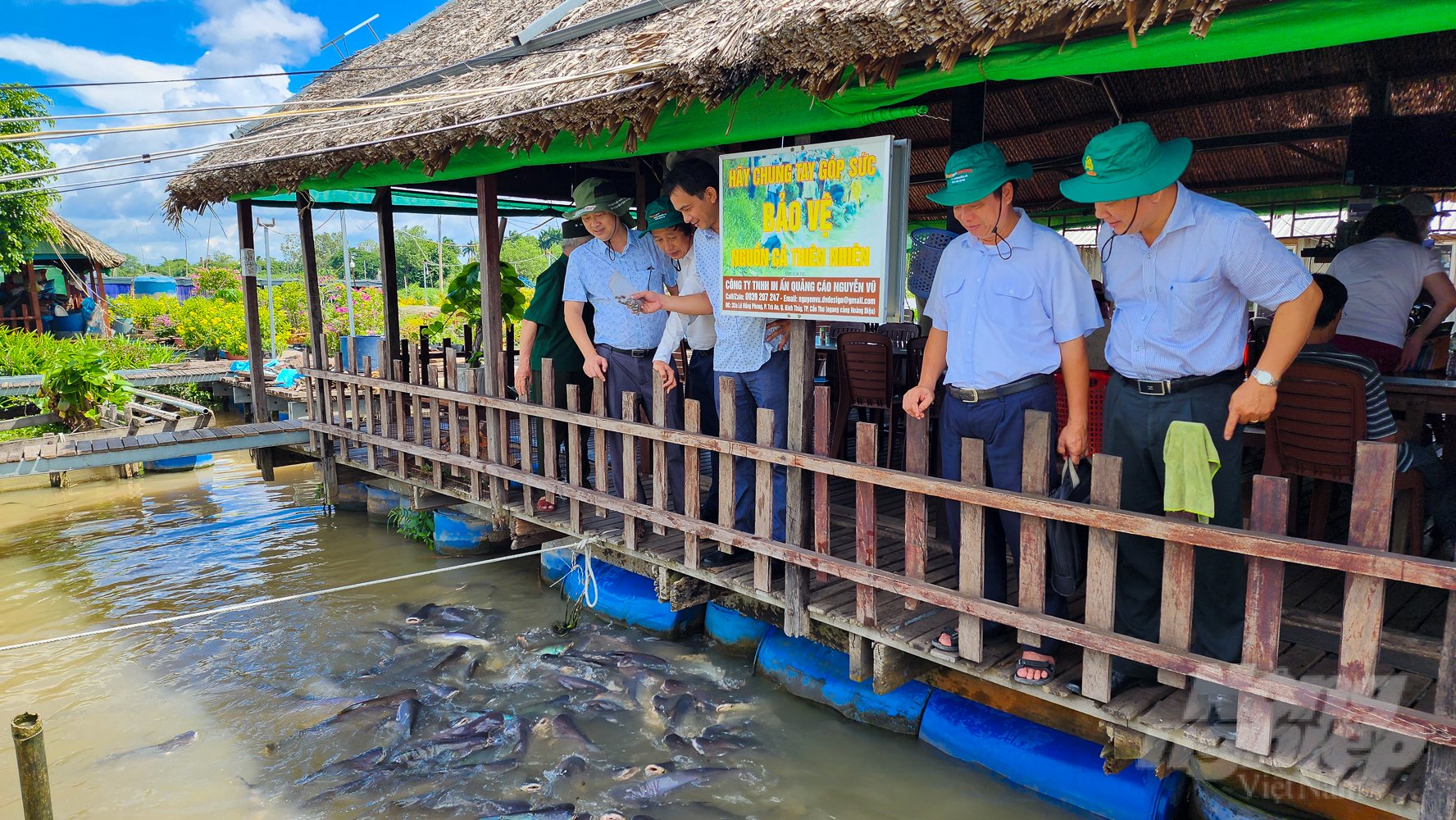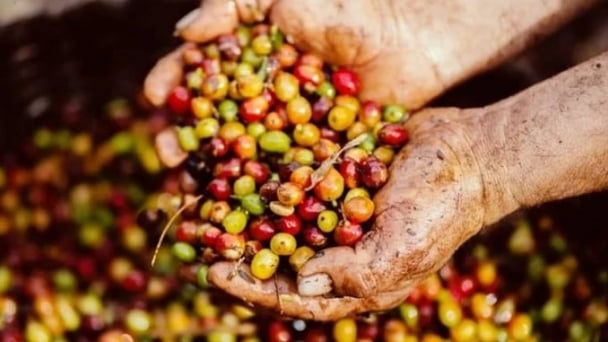June 18, 2025 | 01:10 GMT +7
June 18, 2025 | 01:10 GMT +7
Hotline: 0913.378.918
June 18, 2025 | 01:10 GMT +7
Hotline: 0913.378.918

Can Tho city stock over 520 ha of pangasius, with an output of more than 67,500 tons/year. Thanks to the good management of import and export breeds and input water sources, the disease situation on Pangasius rarely occurs. Photo: Kim Anh.
On June 30, Mr. Phan Quang Minh, Deputy Director of the Department of Animal Health (MARD) had a visit to check the actual situation of aquatic disease prevention and control. He arrives in the Pangasius farming area of the Southern Seafood Industry Co., Ltd. and farming households in Can Tho city.
According to the Can Tho Sub-Department of Livestock Production and Animal Health, the entire city is currently stocking over 520 ha of pangasius, with an output of more than 67,500 tons/year. The production of pangasius fingerlings is mainly concentrated from March to June, providing for production in the city and a small part for export to the province. In addition, pangasius seed is also imported from the provinces of An Giang, Dong Thap for commercial farming.
In addition, in the city, there are currently 40 establishments producing, nursing and trading aquatic breeds that have been granted certificates of eligibility for operation. The Sub-department has carried out the quarantine of aquatic animal breeds mainly produced in the province to localities in the region.
In order to strengthen the prevention of diseases on farmed aquatic products, the Sub-Department of Livestock Production and Animal Health has coordinated with the city's Sub-Department of Fisheries to regularly monitor the farming environment. Consequently, information on changes in farming areas, aquatic diseases, and quarantine of breeding stock is strictly managed. The unit also conducts periodic and irregular inspections to find out the causes and orientation of solutions when there is an unusual occurrence of aquatic diseases in the area.
Southern Seafood Industry Co., Ltd (South Vina) is one of the major export processing factories of pangasius fillets in Can Tho. This business has built 15 large farming areas spread across provinces in the Mekong Delta. In Can Tho, the business's farming area is located in Con Son, Binh Thuy district, with the ability to supply 200,000 tons of raw pangasius/per year.
According to a technical representative of the Company, in recent times, pus-filled liver and kidney disease has been widely detected in ponds. Thanks to low-density farming, strict management of input water, along with the use of probiotics and probiotics, the company has helped businesses manage diseases in ponds. As a result, the loss rate in farming crops is only about 20%.

Mr. Phan Quang Minh, Deputy Director of the Department of Animal Health, and units under the Can Tho City Department of MARD inspecting the prevention of aquatic diseases at Bay Bon fish raft, Con Son, Binh Thuy district. Photo: Kim Anh.
Monitoring epidemics on farmed aquatic products in the first 6 months of 2023, Deputy Director of the Can Tho Sub-Department of Livestock Production and Animal Health – Mr. Nguyen Quoc Vinh said, diseases on aquatic products only occurred in small numbers in farming households and did not cause much damage. Moreover, farming households can proactively handle the disease, preventing the disease from spreading to the outside. Up to now, the unit has collected 17 samples of pangasius fingerlings for testing and monitoring the causative agent of pyelonephritis. The test results showed that the samples were negative for causative agents.
According to the plan, in the last 6 months of 2023, the city's Sub-Department of Livestock Production and Animal Health will coordinate with the Department of Aquatic Pathology, College of Aquaculture and Fisheries (Can Tho University) to organize training courses, propaganda on prevention and control of aquatic diseases to farmers in the area.
In addition, sampling for disease surveillance on pangasius, tilapia and brackish water shrimp seed at times when pathogens are likely to appear. Thereby helping farmers promptly detect and handle according to the treatment regimen to minimize loss and avoid spreading. Unscheduled specimen collection will also be carried out when an epidemic occurs in the pond. Particularly for pangasius, in case the results are positive for pathogenic bacteria, the functional sector proposes to make an antibiotic map and determine the treatment regimen to guide and support the treatment facility.

Most large-scale pangasius farming establishments in Can Tho apply food safety farming models towards VietGAP, BAP, ASC standards. Photo: Kim Anh.
Through the process, Mr. Phan Quang Minh, Deputy Director of the Department of Animal Health suggested that Can Tho update information on epidemics in general and aquatic diseases in particular in a timely manner through the VAHIS system. The system has many tools to support the analysis of epidemiological data. Consequently, the authorities can easily identify the epidemic trend. Additionally, making timely forecasts for the locality, proactively preventing disease for farmers.
Currently, Can Tho does not have a facility recognized as safe for aquatic animal diseases. Most pangasius farming establishments are large-scale, often applying food safety farming models in the direction of VietGAP, BAP, and ASC standards.
Small-scale brackish water shrimp hatcheries are eligible to participate in disease safety construction. It is expected that Can Tho will deploy a brackish water shrimp hatchery in the area in 2024.
Translated by Hoang Duy
![Turning wind and rain into action: [7] Early disaster warnings help marine farmers minimize losses](https://t.ex-cdn.com/nongnghiepmoitruong.vn/608w/files/news/2025/06/17/z6704423696987_15fd32ffc26d590d204d520c9dac6786-nongnghiep-142942.jpg)
(VAN) In recent years, thanks to early disaster warnings and forecasting, marine farmers in Khanh Hoa province have been able to reduce risks and losses, thereby improving production efficiency.
![Turning wind and rain into action: [6] ‘Four on-the-spot’ disaster management software](https://t.ex-cdn.com/nongnghiepmoitruong.vn/608w/files/news/2025/06/17/e5a48259d6a262fc3bb3-nongnghiep-183800.jpg)
(VAN) By simply activating the scenario on the disaster management software, the relevant authorities immediately know how many households need to be evacuated, where to evacuate them to, and by what means of transportation…
![Turning wind and rain into action: [5] Hue applies modern technology in disaster forecasting](https://t.ex-cdn.com/nongnghiepmoitruong.vn/608w/files/news/2025/06/17/z6704423696987_15fd32ffc26d590d204d520c9dac6786-nongnghiep-093938.jpg)
(VAN) In Hue city, modern technology has recently been applied in meteorological and hydrological forecasting and warning, helping to reduce the damage caused by natural disasters.

(VAN) A cutting-edge farming technique being implemented on an experimental ranch in Arizona's Sonoran Desert has already saved a billion gallons of water over five years, according to Civil Eats.

(VAN) Poultry and pig production and the environment can be boosted through enhanced water technology, according to new research.

(VAN) Coffee prices on June 16, 2025 are unchanged. In Vietnam, local trading prices are holding steady, ranging around VND 112,000 – VND 112,500/kg.
![Turning wind and rain into action: [4] Bringing climate bulletins to remote and isolated areas](https://t.ex-cdn.com/nongnghiepmoitruong.vn/608w/files/linhnhp/2025/06/14/1152-z6704423696987_15fd32ffc26d590d204d520c9dac6786-nongnghiep-151141.jpg)
(VAN) The Vietnam Agriculture and Nature Newspaper interviewed Mr. Vu Thai Truong, Acting Head of Climate Change and Environment at UNDP Vietnam, to gain deeper insight into how climate bulletins are delivered to farmers.